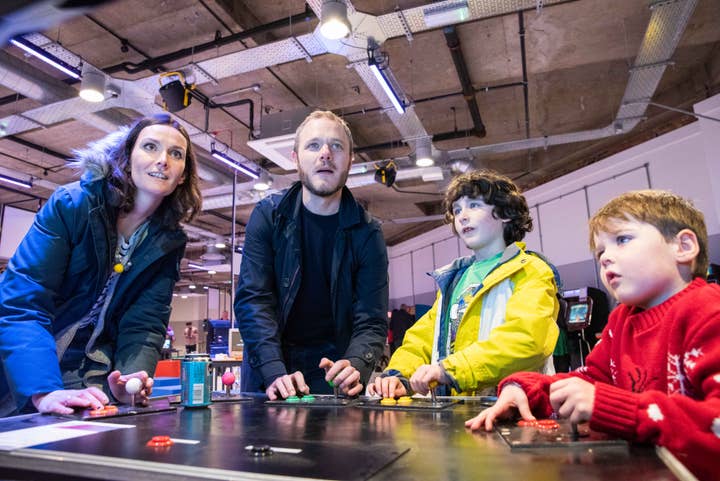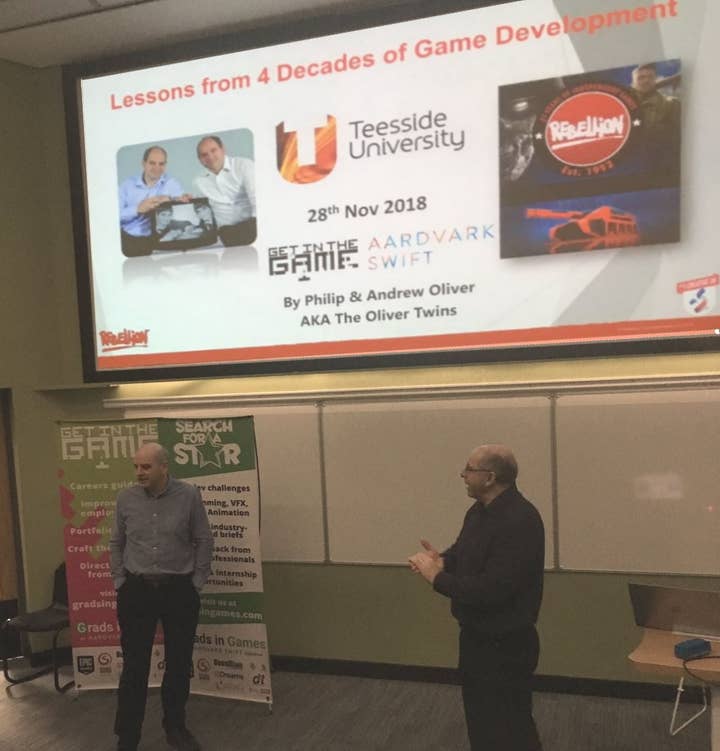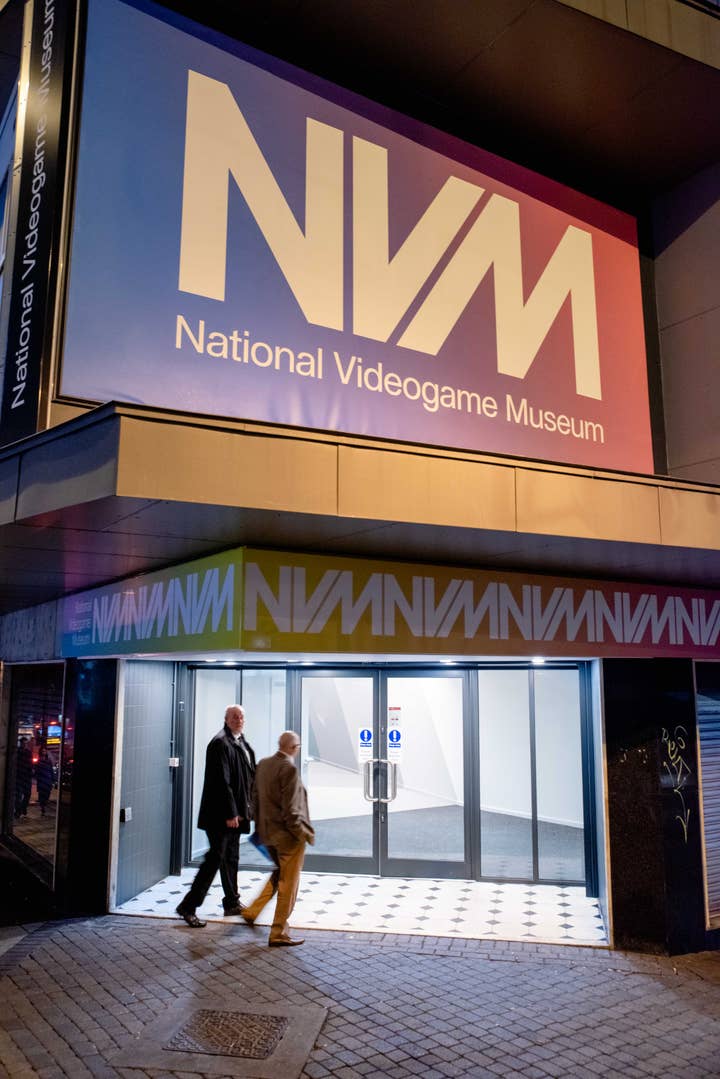The next generation starts with you | Opinion
Game Dragons' Philip Oliver offers advice on how to better work with academia to improve the quality of graduates
Andrew and I have been making games and running development studios for over 35 years. Back in the early days we designed and wrote over 50 games between us, but as time went on we headed teams of people developing new games, and over the last 20+ years, we have hired around 600 game developers.
So we understand how hard it can be to fill all the roles that a thriving game studio needs, and it's never been more critical to support and encourage the pipeline that brings more people into the industry.
Lucky Breaks
Having a career you enjoy is fantastic in any industry, but to have one that you love in games is just the best. We're lucky enough to have achieved but it could so easily not have happened at all. Sure, we worked hard, but we needed our lucky breaks too. We had teachers and supporters willing to help us along the way and give us the space to experiment and succeed at each stage.
Working in the games industry is a privilege
The games industry is an ever-growing entertainment sector and the global market is expected to exceed $150 billion (£113 billion) this year, according to Newzoo market data, with around 2.5bn people playing games.
"If there are more people studying games development than working professionally in it, why do we still have skills shortages?"
According to TIGA, there are approximately 16,000 game developers working full and part-time in about 1,100 games development companies in Britain. That's about 1 in 2,000 of the total UK workforce, but the latest education data shows there are a lot more people who'd like to work in the games sector too.
Andrew and I have been working with the British Games Institute to get an idea of just how many people are studying to make games. We're still gathering data but it looks like nearly 400 games development courses are starting in September 2019 across over 100 universities, plus 75 courses run by around 30 higher education colleges. We estimate that equates to around 9,000 students. If you take into account the number of students already studying, there will be around 21,000 students studying the skills required to make games over the next 12 months.
If there are already more people currently studying games development than work professionally in games development (demonstrating what a privilege it is to work in games), why do we still have skills shortages?

Skill shortages vs course quality
The games industry has a massive shortage of talent. So many companies have vacancies and complain that it's hard to find people with the skills required to fill them. Now, I find this absurd given the number of students studying at Higher and Further Education levels.
The UK games development sector has been growing at an average of 8% since 2012 so if it were to continue growing at the same rate until 2023 when the 2019 student intake hit the market, the games sector would need 1,500 new staff to maintain that growth figure. Even if you assume that the games sector hires no-one from other places, largely generalist degrees, or straight from school or career changes, there will be at least six students for every job (and probably a lot more).
There are easily enough graduates to fill these vacancies on the surface but clearly, it's not just a numbers game -- it has to be about the quality of student output too.
These undergraduates sign up to these games courses in the hope that this investment of their time and money will see them on the road to successful careers. There are hundreds of lecturers working hard to help inspire, motivate and educate them in the skills required by the industry. With such a large student body, there will of course be a natural range in quality in the output from these courses. However, what continues to shock and disappoint Andrew and I is how quick some in the industry are to disparage the quality of games development education in general, but without doing anything to help improve it.
Now we've been around long enough to remember when there were no games courses at all. In fact, the reason we didn't go to university is largely because there were no courses that even came close. But about 20 years ago the first courses emerged -- one of the first in the world being at Abertay University, set up because that's where the factory making Spectrums was located. On that first course was David Jones, whose company DMA Design, later renamed Rockstar North, is responsible for the Grand Theft Auto and Red Dead Redemption series.

Andrew and I visit a lot of universities. I'm a visiting professor at Staffordshire University, which has one of the largest games student bodies with around 1,300 games students. By and large, all the universities we visit are doing a great job. We've seen fantastic lecturers, students and facilities, but the best courses continually ask "could they be better"? What are the latest skill sets, techniques and tricks of the trade that could make graduates even better new recruits to fill our vacancies and allow our industry to thrive?
Our sector is built on the principle that everything and everyone could be better. If only out of self-interest, we need to help educators deliver more.
The gap between industry and education
One of the shocking truths is that there is very little engagement between colleges, universities and the games industry. Even the best courses have a few practitioners in to speak to students roughly once a month, and many are less frequent. Also, we don't have data on how many highly skilled people from the games industry go back into universities to teach the next generation, but the reality is that once they're out of the industry for more than a few years then their own skills may also be out of date.
So for the universities and colleges, it's hard to improve when you have so little feedback, but it's worse for the students who need the thrill and motivation that comes from visiting real game development studios and meeting the people who are doing the jobs they aspire to. We've seen repeatedly that this is the most motivational career experience they can have -- it's the Charlie and the Chocolate Factory experience for aspiring game developers.
"Please help the next generation have every chance of being as lucky as you are -- you could be their lucky break"
Paying it forward
Many years ago at Blitz Games, we threw our studio open a couple of times a year and invited students to visit. We'd give a number of presentations, walk them around the studio and then pair them up with our expert developers, so they could see games they were working on, ask questions and have portfolio reviews. They were very full days and the feedback we had was incredible. It was a time-consuming exercise, but everyone involved got a real buzz from knowing they were helping these students so much. It also led to some star recruits too -- one I clearly remember was Mike Bithell.
It wasn't golden tickets in chocolate bars for entry; we carefully selected students who had to apply online for the limited number of spaces, 30 for each session, saying what they were studying and why they should attend.
What can you do?
It depends on your position within your studio, but everyone can do something, and imagine the effect if everyone in the games industry decided to help the next generation a little bit each year. It would make a massive difference to their careers, and help them gain the skills required to help your studios in the long run.
Firstly we can all be positive about the potential of these students and the courses. Many people regardless of position can engage with the local college or university and offer to pop in to talk to students. If you're very confident, perhaps you could even stand at the front and give a lecture on what you do and take questions.

Some of the medium or large studios run open days and if your studio doesn't, it would be fantastic for you to bring this to the attention of those in your office who could make that happen. If they want any advice on how to run this, ask them to get in touch with us, we can help.
Remember back when you started, would you have been grateful for this? If so, try and do this for the next generation.
What are we doing?
We all need to collectively bridge the gap between education and industry and, in addition to our regular university lecturing and visits, we've also been working with BGI to create a new conference to help close this gap.
GamesED19, is a two-day conference for games industry studio leads, heads and HR people to meet with educators and discuss how they can all help each other, and therefore themselves and the next generation of game developers.
This first of a series of annual conferences won't solve everything in its first year, but just starting a regular dialogue will help increase the job readiness of the students and start to tackle the skills gap. It's time to think strategically about your studio in several years' time when it will undoubtedly still be looking for talented programmers, artists, designers, and others.
GamesED19 will be held at the National Videogame Museum, Castlegate, Sheffield (pictured) on Monday, April 15 to Tuesday 16. Join us for a range of sessions featuring 40 leading studios and educators talking about the future of games education. For more information, visit the website.
Whether you can attend or not, please help us build a better picture of the issues that need solving by ensuring that the person in charge of HR in your studio completes the short GamesED19 survey.
I'm sure you have some great stories of the pivotal moments that helped you get into the games industry, and I'd like to think that you've thanked those people who gave you the lucky breaks.
So please help the next generation have every chance of being as lucky as you are -- you could be their lucky break.
Philip Oliver is co-founder of new consultancy firm Game Dragons and one half of the veteran Oliver Twins. This is the first in a series of columns from Game Dragons offering advice to developers on growing their business. You can read the rest here.